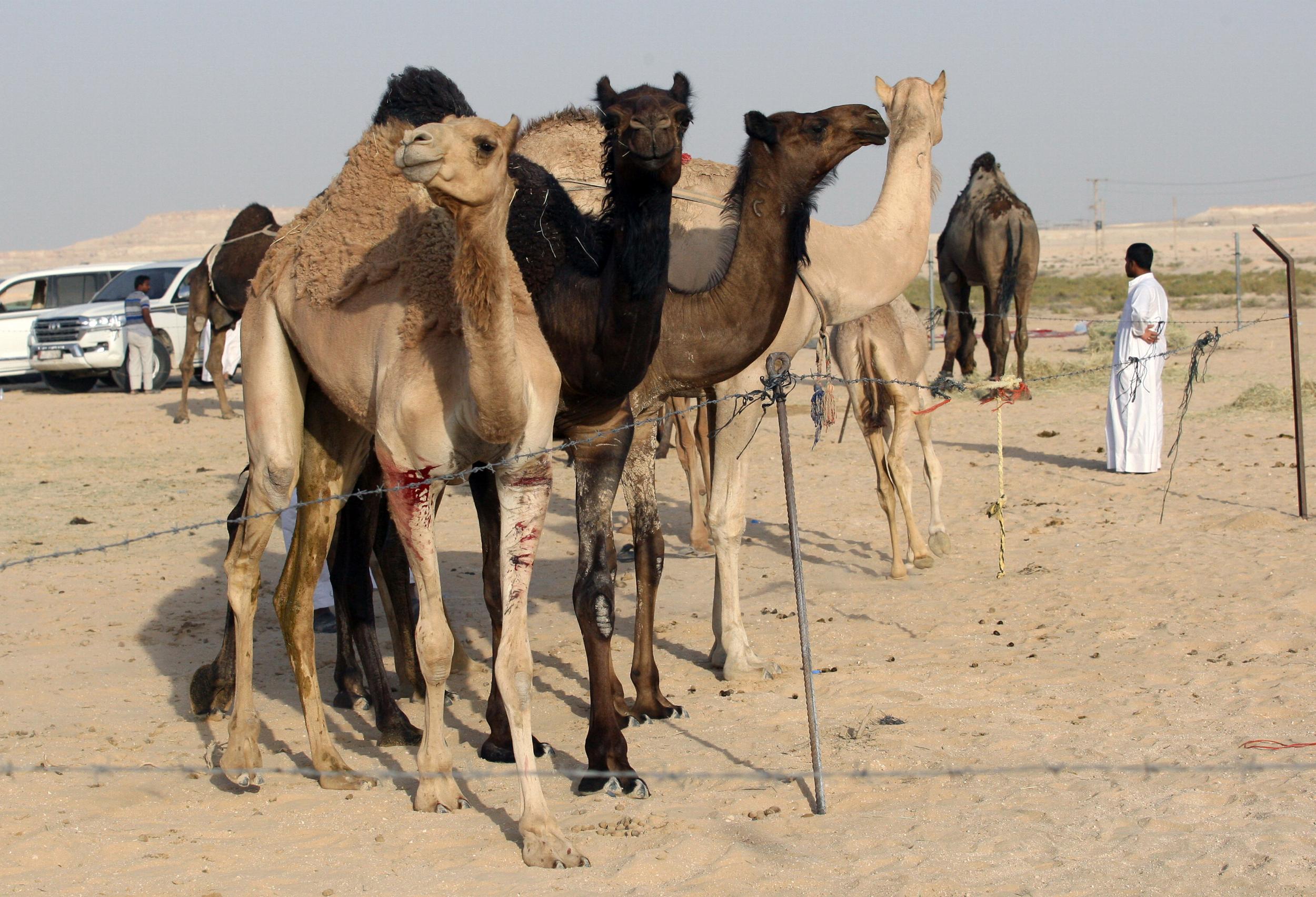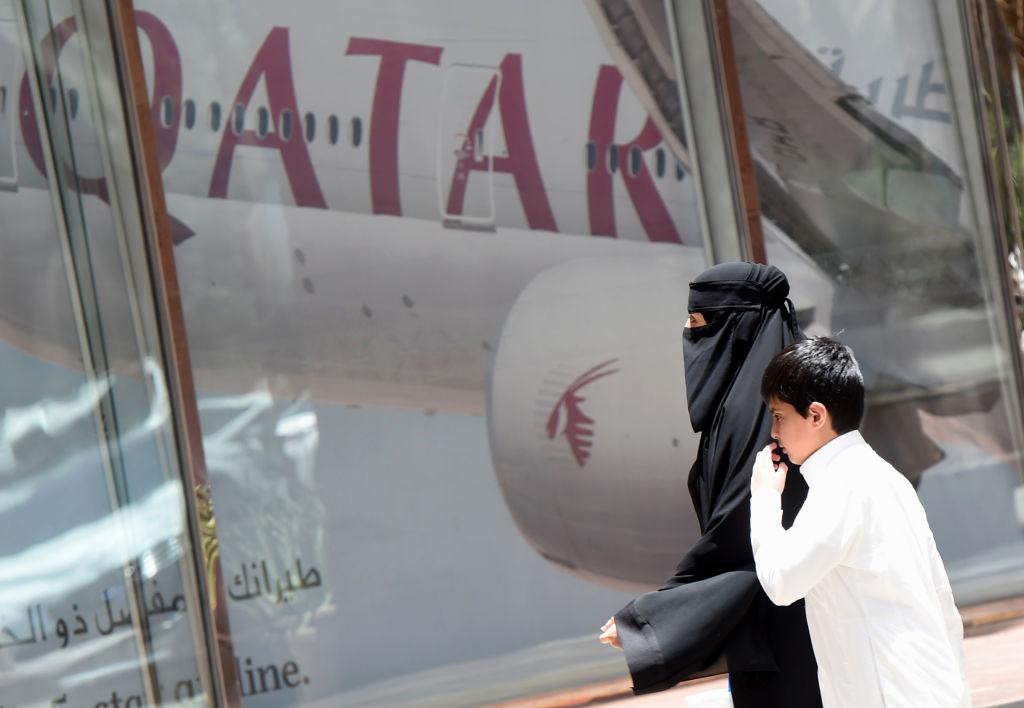Saudi Arabia deports Qatari camels and sheep as diplomatic feud continues
Livestock grazing across the border from tiny Qatar on rented land ordered back as diplomatic spat shows no signs of abating

At least 12,000 Qatari-owned camels and sheep have been ordered out of Saudi Arabia as both sides in the Gulf diplomatic crisis refuse to back down.
Temporary shelters, water and food have been set up for 7,000 camels and 5,000 sheep forced to trek back to the kingdom across the desert border, Qatari newspaper The Peninsula reported on Tuesday, while website al-Raya put the figure at 25,000.
The Ministry of Municipality and Environment said that more permanent accommodation was being prepared.
Qatar is home to around 22,000 camels, which are raised for racing as well as for meat and milk, but many herdsmen in the tiny kingdom rent pastures in much larger neighbouring Saudi Arabia.
The latest move from Riyadh has triggered angry reactions among Qatari farmers.
“We just want to live out our days, to go to Saudi Arabia and take care of our camels and go back and take care of our family,” Ali Magareh, 40, told Reuters.
“We don’t want to be involved in these political things. We are not happy,” he added.

The farmers are the latest victims in the escalating spat, which began 5 June when Saudi Arabia, the UAE, Bahrain and Egypt cut all diplomatic ties and suspended air and sea links with Doha, accusing it of supporting terrorism and controversial political groups. The decision has since been adopted by several other Muslim nations.
Qatar vehemently denies the charges. Tentative reconciliation efforts led by delegations from Kuwait, as well as encouragement from Turkey, the US State Department and UN, have so far come to nothing.
Qatari citizens were given two weeks to leave the affected countries, turning the lives of thousands of families upside down, and almost all Qatar Airways flights are now facing lengthy diversions.
Inside the country, which imports 80 per cent of its food, panic over food and fuel shortages have led to empty supermarket shelves and stockpiling.
Iran, a secondary target of the diplomatic stand-off, began cargo flights of up to 100 tons of fruit and vegetables a day to Doha on Sunday.
The crisis, which shows no signs of abating, could have manifold economic and political effects for the Middle East – as well as alter the course of the region’s many conflicts.
Join our commenting forum
Join thought-provoking conversations, follow other Independent readers and see their replies
Comments